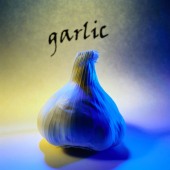 |
 |
 |

Garlic as a Cancer Fighter? Maybe Not
Evidence that strong-smelling herb prevents cancer is said to be weak|
|
HealthDay
Friday, January 9, 2009
 FRIDAY, Jan. 9 (HealthDay News) -- Since ancient times, eating garlic has been credited with many medical benefits, including fighting viruses, bacteria and cancer as well as lowering cholesterol.
FRIDAY, Jan. 9 (HealthDay News) -- Since ancient times, eating garlic has been credited with many medical benefits, including fighting viruses, bacteria and cancer as well as lowering cholesterol.
But a new review finds that the evidence linking garlic to a reduced risk for many cancers is not creditable and, for others, it is very limited.
"The public wants to believe that garlic may be effective in reducing the risk of cancer, but so far scientific evidence is limited to conclude [it works] for all types of cancers," said Dr. Oran Kwon, a researcher at Ewha Women's University in Seoul, South Korea, and lead author of the study, published in the January issue of The American Journal of Clinical Nutrition.
Kwon's research team did a meta-analysis, pooling the results of 19 published and scientifically sound studies that looked at garlic intake and risk reduction for specific cancers. They used the U.S. Food and Drug Administration's review system for evaluating the scientific evidence for making a health claim about a food.
Using those criteria, the researchers concluded that there was not creditable evidence to link garlic intake with a reduced risk for gastric, breast, lung and endometrial cancer. They found very limited, but credible, evidence linking garlic intake to a reduced risk for colon, prostate, esophageal, laryngeal, oral, ovarian and renal cell cancer.
The study urged that food labeling indicate that garlic is "highly unlikely" to reduce colon cancer risk and "highly uncertain" to reduce prostate cancer risk, and that there is a "highly uncertain" relationship between garlic intake and reduced likelihood of developing esophageal, laryngeal, oral, ovarian or renal cell cancer.
Kwon suggested that additional studies are needed.
Scientists have theorized that garlic may work in a number of ways to reduce cancer risk, including undoing the oxidative stress caused by "free radical" molecules, which can boost the risk of cancer and other health problems.
"The bottom line is, there is certainly not enough evidence for garlic for a health claim for any cancer prevention," said Colleen Doyle, director of nutrition and physical activity for the American Cancer Society in Atlanta.
"There is weak evidence it may have an impact on some cancer sites," she said.
Her advice? "If you like garlic, great. Roast it, chop it up, sauté it. It's not going to be harmful to you," she said. "If, down the line, stronger evidence emerges that garlic has an impact on cancer, great. If you like it, eat it."
Meanwhile, said Doyle, a garlic lover herself, focus on actions known to reduce cancer risk, such as eating a well-balanced diet.
"We do know that people who eat a diet with a mixture of fruits and vegetables, who eat mostly a plant-based diet, do tend to have lower rates of cancer."
HealthDay
Copyright (c) 2009 ScoutNews, LLC. All rights reserved.
Related News:
More News on this Date
Related MedlinePlus Pages:
| Home | Health Topics | Drugs & Supplements | Encyclopedia | Dictionary | News | Directories | Other Resources | |
| Disclaimers | Copyright | Privacy | Accessibility | Quality Guidelines U.S. National Library of Medicine, 8600 Rockville Pike, Bethesda, MD 20894 National Institutes of Health | Department of Health & Human Services |
Date last updated: 12 January 2009 |




